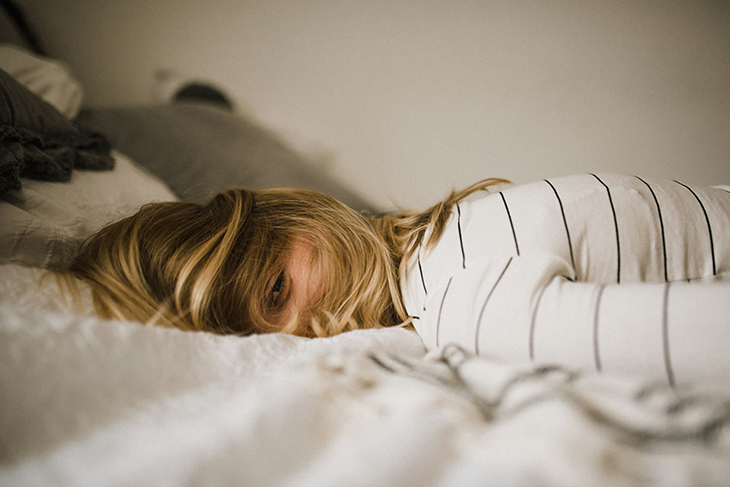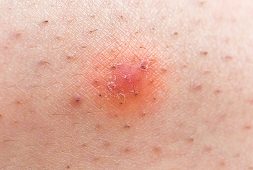
Do you often feel miserable and exhausted in the days leading up to your period each month? A recent study suggests that fluctuations in sleep and mood may be linked to menstrual cycles.
For the study, researchers asked 51 healthy women aged 18 to 35 to wear sleep trackers and keep daily diaries recording their sleep patterns and emotions over two menstrual cycles.
During the perimenstrual phase, which occurs just before their periods start, participants experienced more frequent nighttime awakenings and spent less time in bed. They also reported increased feelings of anger and fewer positive emotions like happiness, calmness, and enthusiasm, according to findings published in the Journal of Sleep Research.
Lead study author, Jessica Meers, PhD, a clinical psychologist at Baylor College of Medicine in Houston, who is board-certified in sleep medicine, says, “I think that many women will say that the mood and sleep-related findings are not surprising at all. Some may even feel validated that their experiences have been documented scientifically.”
Poor Sleep Has A Negative Effect on Positive Emotions
Dr. Meers highlights the surprising connection between sleep disturbances and deteriorating mood during the perimenstrual phase.
“So often, we hear how negative mood is impacted by sleep and menstrual problems. We don’t often think about how it may be that we are actually experiencing fewer positive emotions rather than an increase in negative emotions when we don’t get enough sleep,” she says.
Although the study did not aim to establish why changes in sleep or mood could be associated with menstrual cycles, Dr. Meers suggests that rapid rises in the reproductive hormone progesterone before monthly periods might account for some of these connections. Elevated progesterone levels can lead to slight increases in body temperature, which may disrupt sleep.
“These changes in body temperature may not be enough to actually feel, but could be just enough to cause some sleep disruption. When combined with other symptoms like menstrual pain, bloating, etc., this sets the stage for noticeable changes in sleep, and this study suggests that these sleep changes then go on to have downstream effects on positive emotion,” Dr. Meers says.
However, one limitation of the study, aside from its small size, is that none of the participants used hormonal contraceptives.
A clinical psychologist at McLean Hospital and assistant professor of psychology at Harvard Medical School in Boston, Laura Payne, PhD, who wasn’t involved in the new study says,
“For those on hormonal birth control, there may be less risk of mood and sleep changes, because hormonal birth control keeps your hormones relatively stable, although certainly many women still experience some mood and sleep changes even with hormonal treatments.”
Ways to Improve Sleep and Mood Around Your Monthly Menstrual Cycle
Dr. Payne notes that the study findings overall confirm what many women of reproductive age experience during their menstrual cycles.
According to Dr. Payne, there are numerous strategies women can employ to alleviate period-related insomniaand mood changes. This includes focusing on habits that support good sleep hygiene throughout the entire month, not just during the perimenstrual phase.
Dr. Payne recommends practicing good sleep hygiene, which involves establishing a consistent wake-up and bedtime routine every day, including weekends. Additionally, ensuring that time spent in bed is reserved solely for sleep and intimacy, rather than lounging or working during waking hours, can be beneficial.
Dr. Payne adds that cutting back on, even avoiding it after lunch, can also help. In addition, limiting or avoiding alcohol helps, too — especially during the perimenstrual phase. “Alcohol use not only causes sleep disruption, but it also has a direct impact on estrogen, which can exacerbate changes in the already shifting hormones during this phase,” Dr. Payne says.
Paying extra attention to daily routines during the perimenstrual phase can help minimize the potential for sleep disruptions to negatively impact mental health, Dr. Payne suggests. Incorporating more mood-boosting activities during this time of the month, such as spending extra time with good friends, engaging in a motivational workout, or simply spending time outdoors, could make a big difference.
Understanding that there’s a valid reason behind these low moods during this time of the month may also help make things more acceptable. Dr. Payne says, “It can be helpful just to know that this phase of the menstrual cycle can be challenging, and then use that information to help decrease the power and intensity of negative thoughts associated with low mood.”



